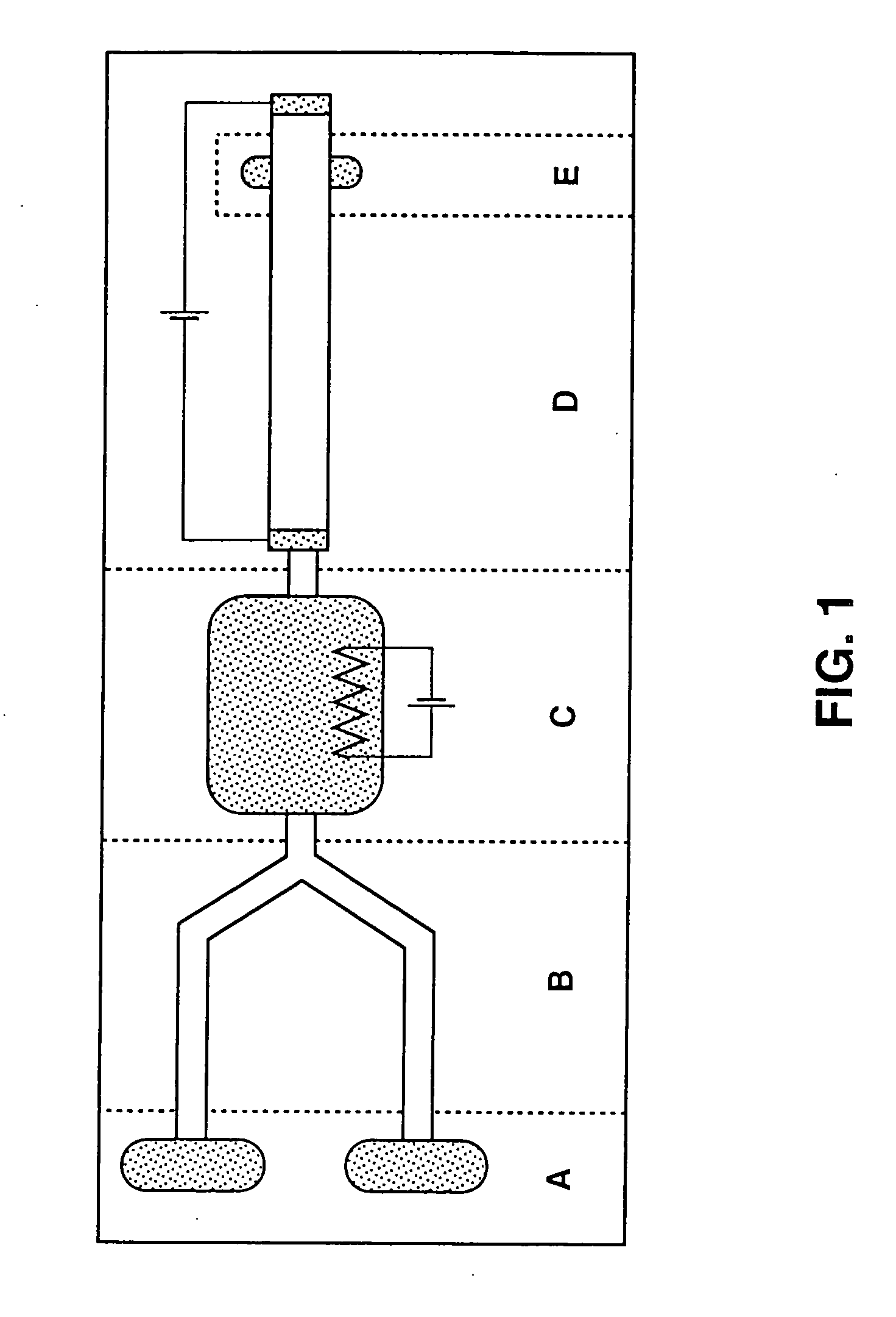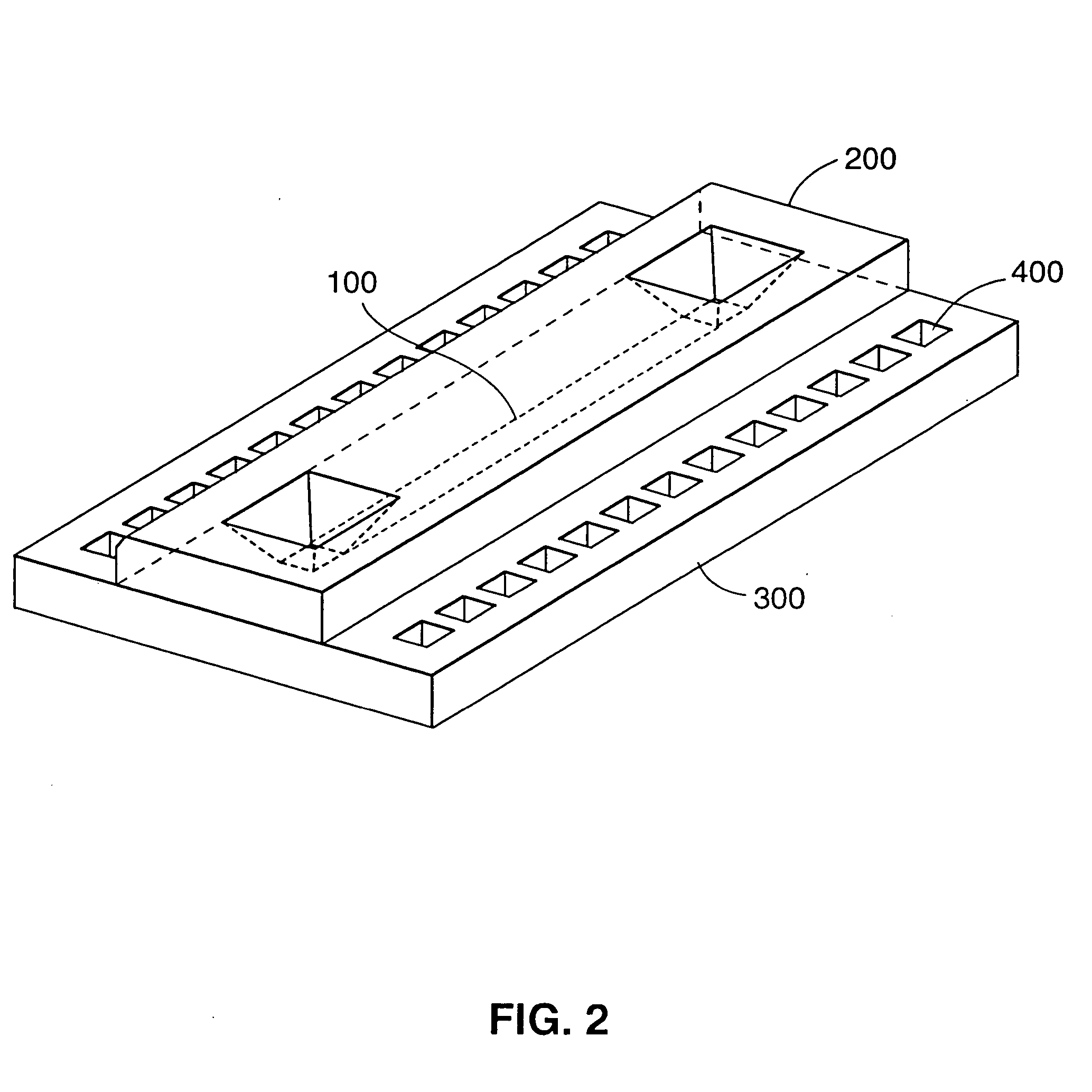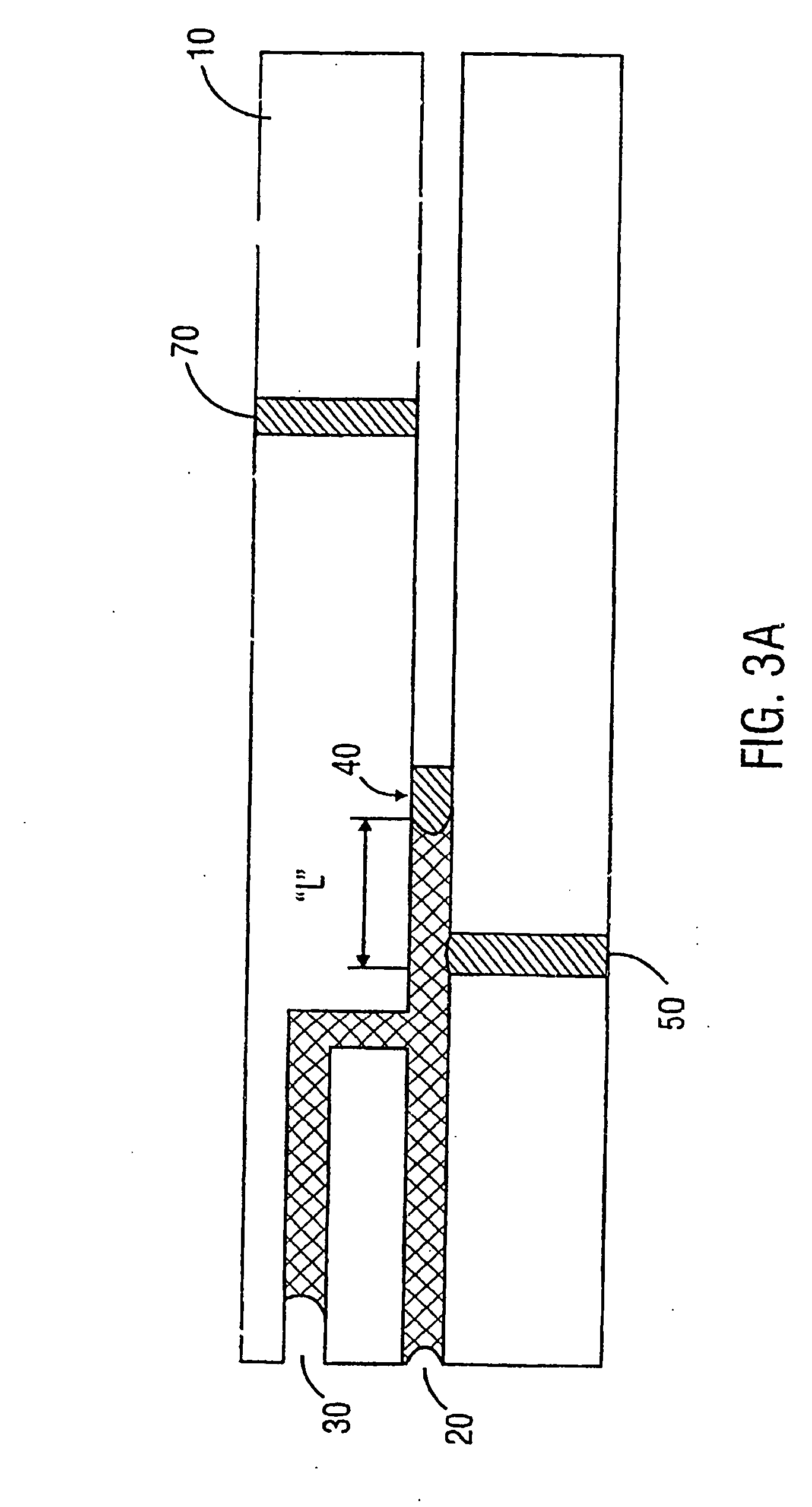Compositions and methods for liquid metering in microchannels
a microchannel and liquid metering technology, applied in the field of compositions, devices and methods to control the size and movement of microdroplets, can solve the problems of complex integrated systems and easy assembly of multi-component devices, and achieve the effect of preventing short circuits and/or damage to electronic elements, and enhancing the degree of mixing in a merged microdropl
- Summary
- Abstract
- Description
- Claims
- Application Information
AI Technical Summary
Benefits of technology
Problems solved by technology
Method used
Image
Examples
example 1
[0263] This example describes approaches to the problem of forming a moisture barrier over electrical elements of the microscale device. Initial prototypes employed 5000 angstroms of aluminum and covered it with PECVD SiOx. Upon testing, it was determined that the liquids were penetrating this later and destroying the aluminum heating elements.
[0264] Without clear evidence what was causing this problem, it was hypothesized that the step height of the aluminum was causing cracks in the passivation layer (the oxide). In order to alleviate the cracking problem, a layer of SixNy was tried between two layers of SiOx, with the thought that the additional thickness would overcome the cracking caused by the step height. It did not.
[0265] As a follow-up approach, a thinner layer (500 angstroms) of aluminum was tried. This gave 1 / 10th the step height of the original prototype devices. On top of this aluminum, a triple layer of SiOx, SixNy, and SiOx was employed. Moreover, the process for ma...
example 2
[0267] This example describes approaches to enhancing droplet motion by surface treatment. In this regard, the principle of using surface tension to cause droplets to move may be applied to either hydrophilic or hydrophobic surfaces. Glass, for instance, is naturally hydrophilic with a near zero contact angle with water. Because the oxide coating of the present invention is made principally of the same material as glass, it was expected that the devices would also exhibit near zero angles. It was discovered, however, that the actual construction materials had contact angles far from zero, thus enhancing the effects of contact angle hysteresis (discussed in greater detail in Example 3). For instance, water gave a contact angle (static) of ˜42° on polyamide, ˜41° on SiO2 (major component of most glasses), ˜62° on silicone spray. To enhance the surface effectiveness, several treatment processes for both hydrophilic and hydrophobic surfaces were tried, as described below.
[0268] To impr...
example 3
[0271] This example describes approaches to droplet motion by heat treatment. As noted previously (above), the contact angle on the advancing end of a liquid droplet in motion (known as the advancing contact angle) is greater that the that on the receding end (receding contact angle). In the case of a hydrophilic surface—such as water on glass—this tends to create a back pressure countering attempts at forward motion by heating the back side of a droplet. This is best shown by a simple model describing laminar flow through a channel.
[0272] Average Flow Through a Circular Channel:
v>=−ΔP*[R2 / (8 μL]
where: [0273]Δ=value at back—value at front end of droplet [0274]ΔP=(1 / R)*(ΔG)=pressure difference between droplet ends [0275]ΔG=change in surface tension between the ends of the droplet. [0276] R=channel radius [0277] L=droplet length [0278]μ=viscosity
[0279] Also, for water, ΔG=−constant*ΔT, where temperature increases lower the surface tension of most liquids (constant=0.16 dyn / cm f...
PUM
 Login to View More
Login to View More Abstract
Description
Claims
Application Information
 Login to View More
Login to View More - R&D
- Intellectual Property
- Life Sciences
- Materials
- Tech Scout
- Unparalleled Data Quality
- Higher Quality Content
- 60% Fewer Hallucinations
Browse by: Latest US Patents, China's latest patents, Technical Efficacy Thesaurus, Application Domain, Technology Topic, Popular Technical Reports.
© 2025 PatSnap. All rights reserved.Legal|Privacy policy|Modern Slavery Act Transparency Statement|Sitemap|About US| Contact US: help@patsnap.com



